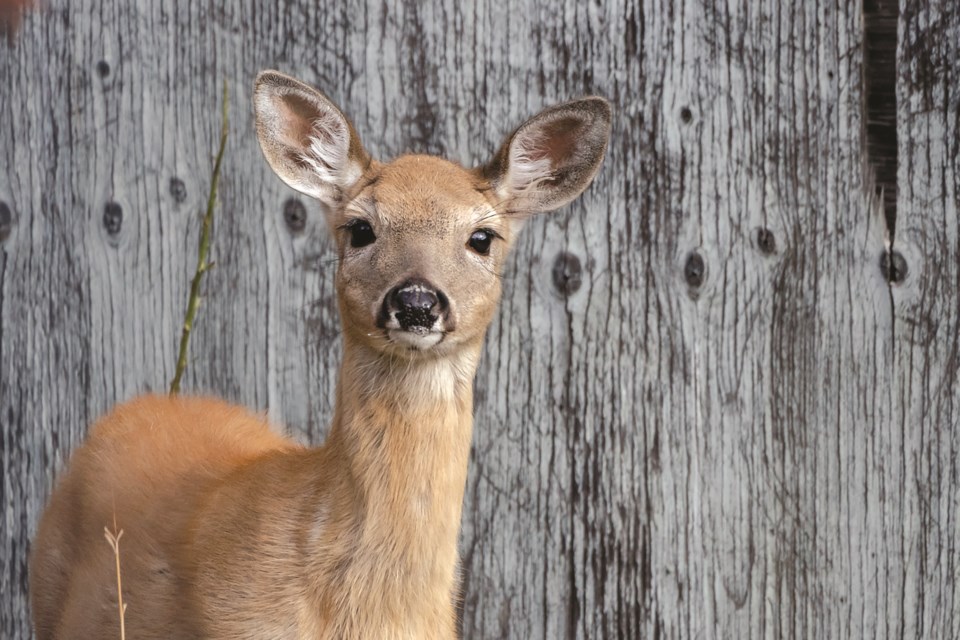The Alberta Institute for Wildlife Conservation (AIWC) has faced a challenging year in caring for and rehabilitating injured and orphaned wildlife, with an increased demand for its services and a decline in donations.
The Madden-based conservation group, accredited through the Alberta Veterinary Medical Association, has cared for 1,728 animals this year, and continues to field hotline calls to service the needs of injured and orphaned wildlife throughout southern Alberta.
According to Holly Lillie, executive director of AIWC, with the continuation of the COVID-19 pandemic, 2021 has posed additional pressure on the organization, as they have seen a decrease in funding.
“AIWC has experienced a decrease in donations, which is understandable as each of us navigate the impact of the pandemic on our individual situations and the economy,” she said. “Despite that, we still see a huge demand for our services.”
She added the centre has taken more than 6,000 calls this year, and continues to provide wildlife education to children, youth, and adults across the province through school and group programs.
“The need for our organization hasn’t slowed down, but we have seen a dip in donations, understandably,” she said.
While the number of wildlife cared for did not increase exponentially this year compared to 2020, Lillie noted the number has increased significantly from 2019, and continues to be a stark indication of the health of the local environment.
In an ideal world, wildlife centres wouldn’t need to exist, she said, but the reality is that 95 per cent of the cases AIWC sees are a result of human conflict in some way.
Through its education programs, Lillie said AIWC tries to limit the amount of healthy wildlife that come into its hospital.
"We know there’s only so much we can do if an animal is injured,” she said. “We obviously want to take them in, but every year we do strive to prevent healthy animals from coming into our hospital because they simply don’t need to.”
According to an AIWC press release, it can cost upwards of $1,000 to care for an animal. Lillie added monetary donations are desperately needed, along with items from the organization’s wish list.
“It’s incredibly expensive to run a wildlife rehabilitation centre,” she said. “Monetary donations help us feed our animals, pay staff, keep the lights [and] power running.”
She added monetary donations are not always feasible for some, and so another way to support the organization is to follow them on their social media channels on Facebook, Instagram, and YouTube.
Those channels are great ways to learn more about what AIWC does, according to Lillie, and get the message out about the natural behaviours of wildlife.
With Christmas just around the corner, Lillie added another way to support AIWC is through donating items found on the organization’s wish list, which includes printer paper, gas cards, and groceries.
“If you have a little bit extra and you can donate, then that’s fantastic,” she said. “Christmas is a busy season for gift giving – if you can’t give a monetary donation, buy the gifts you need [from us.]
“We have an amazing selection of gifts in our store online, and proceeds help support our mission.”
She added the organization is also in the process of recruiting volunteers this month, with another recruiting session beginning in January.
“Wildlife are all around us, we’re so lucky to have an abundance of wildlife species in Alberta,” she said. “Every animal plays a role, from a salamander to a beaver, to a bear, or to an eagle – they all play a role in having a diverse and healthy environment.”
She added while summer is usually AIWC’s busiest season, patients still come in throughout the winter months.
“It’s the season of owls right now, we’ve seen quite a few different species of owls and we’re open every day, including Christmas,” Lillie said.
Those who come across injured or orphaned wildlife are encouraged to call the AIWC hotline at 403-946-2361, or for more information, visit the website at aiwc.ca
Carmen Cundy, AirdrieToday.com
Follow me on Twitter @carmenrcundy



